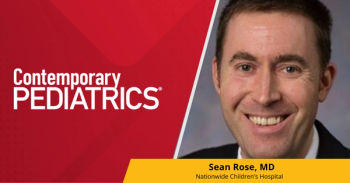
Sexuality talk gets short shrift at teen health maintenance visits
Audio recordings of 253 annual health maintenance visits of adolescent patients showed that in one-third of such visits, sexuality issues including sexual activity, dating, or sexual identity were not mentioned. Even in the visits that included some sexual content, the duration of the talk was brief-an average of 36 seconds.
Audio recordings of 253 annual health maintenance visits of adolescent patients showed that in one-third of such visits, sexuality issues including sexual activity, dating, or sexual identity were not mentioned. Even in the visits that included some sexual content, the duration of the talk was brief-an average of 36 seconds.
Patients aged from 12 to 17 years, who were recruited from 11 clinics, were part of a study of primary care for children with a body mass index (BMI) at the 85th percentile or greater. Forty of the 49 physicians were pediatricians (the rest were family practitioners). Mean age of the physicians, 65% of whom were female, was 40.9 years and mean time since attending medical school was 11.8 years.
In the health maintenance visits in which sexuality was discussed, it was always the physician-never the patient-who brought up the topic. The physician was 4 times more likely to introduce sexuality talk if the patient was a girl and was an older rather than a younger adolescent; and when confidentiality was explicitly discussed, as it was in only 31% of visits. The longer the visit, the more likely that sexuality talk would be included.
In addition to never initiating sexuality talk, adolescent patients were often reluctant to engage in such conversations. When physicians asked questions about sex, about half the teenagers responded with limited answers. Only 4% had prolonged conversations.
Compared with their peers, African American teenagers were almost 60% more likely to participate in conversations about sexual issues and twice as likely to have longer-than-average conversations. Compared with other physicians, those who were Asian were nearly 90% less likely to engage in sexuality talk (
Commentary: I’d like to see a follow-up of this study examining why many physicians didn’t start or continue these conversations. Are the doctors uncomfortable? Have they made an assessment that a particular 13-year-old is not likely to initiate sexual activity? Do they worry that by discussing sexual activity with a young adolescent they will convey that they think such activity is normative or that they encourage it? Or, in this study population of adolescents with elevated BMIs, was discussion of sexual issues displaced by discussion of obesity? The study shows that conversations about sexual issues often were brief or absent. However, it is not clear why. -Michael Burke, MD
Ms Freedman is a freelance medical editor and writer in New Jersey. Dr Burke, section editor for Journal Club, is chairman of the Department of Pediatrics at Saint Agnes Hospital, Baltimore, Maryland. He is a contributing editor for Contemporary Pediatrics. The editors have nothing to disclose in regard to affiliations with or financial interests in any organizations that may have an interest in any part of this article.
Newsletter
Access practical, evidence-based guidance to support better care for our youngest patients. Join our email list for the latest clinical updates.






